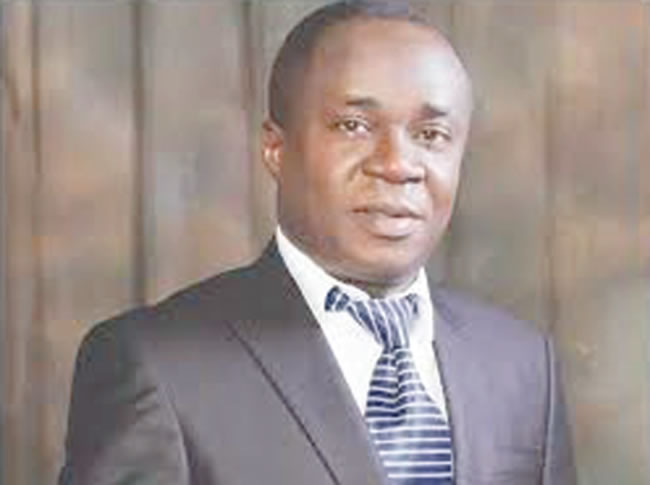JOSEPH INOKOTONG writes on the assertion of the Association of Capital Market Academics of Nigeria (ACMAN) that on the supply side of FX, a lasting solution remains to embark on deliberate efforts to diversify Nigeria’s export base, while the Central Bank of Nigeria (CBN) should revisit the currency swap arrangement with China to a scale that reduces significantly the dependence on US dollars for imports from China.
Nigeria’s economy has been in dire straits and may remain so in the medium term, despite spirited efforts by President Bola Tinubu’s administration to wheel it out of the intensive care unit where it has been lying prostrate due to many factors.
Experts say the economy is burdened by high inflationary pressures, under-performing real sector, unstable exchange rate, high-interest rates, low productivity, high unemployment rate, multidimensional poverty, unbridled corruption, high debt portfolio, low revenue base, among others that have conspired to strangle the economy.
It was on this score that the administration of President Tinubu swung into action on the first day in office. The president wasted no time but swiftly announced a bouquet of economic reforms aimed at rejuvenating the ailing economy. Notable among them is the removal of fuel subsidy and the unification of the foreign exchange (FX) market rates.
More than 100 days after the reforms were introduced, experts and other stakeholders have been appraising its impact on the populace, including how the economy has performed under the new regime.
Last week, the Association of Capital Market Academics of Nigeria (ACMAN) took its turn to scrutinise the state of the Nigerian economy, especially how the reforms have fared and proffered solutions to the administration on the way forward.
It is pertinent to state that ACMAN is the umbrella body of lecturers and researchers in the Nigerian university system and the financial market industry committed to the development of the Nigerian capital market through teaching, research and advocacy.
Professor Uchenna Uwaleke, President of ACMAN, during the association’s interaction with newsmen, explained that the assessment of the first 100 days of the new administration was intended to unearth the key policy measures rolled out thus far with a view to offering suggestions regarding their effective implementation.
According to ACMAN, in recent years, the Nigerian economy has been characterised by weak growth, high inflation, unemployment and volatile exchange rates, rising public debt and fiscal imbalance compounded by CBN’s Ways and Means and a corrupt fuel subsidy regime.
Indeed, ACMAN was stating the obvious. The National Bureau of Statistics (NBS) in its recently released Consumer Price Index (CPI) report for August 2023 stated that Nigeria’s inflation rate surged to 25.80 percent in August 2023, showing 1.72 percent points higher than the 24.08 percent recorded in the previous month of July. It noted that food and non-alcoholic beverages contributed the most to the rising inflation with 13.36 percent followed by housing, water, electricity, gas and other fuel, 4.32 percent and clothing and footwear 1.97 percent to the year-on-year inflation.
According to the NBS, food inflation rate jumped to 29.34 percent in August 2023, representing 2.35 percent points increase from 26.98 percent recorded in the previous month and 6.22 percent points higher than 23.12 percent recorded in the corresponding period of 2022.
It attributed the rise in food inflation on a year-on-year basis to increases in prices of oil and fat, bread and cereals, fish, fruit, meat, vegetables and potatoes, yam and other tubers, vegetable, milk, cheese and eggs.
On debt, Nigeria’s total public debt stock increased to N87.38 trillion from N49.85 trillion ($108.30 billion) recorded in the first quarter of 2023.
The NBS, in its Nigerian Domestic and Foreign Debt Report for Q2 2023 released Friday last week, said Nigeria’s public debt stock, which included external and domestic debt, grew by 75.27 percent in Q2 2023. It noted that external debt stood at N33.25 trillion ($43.16 billion) in Q2 2023, while domestic debt was N54.13 trillion ($70.26 billion).
The Debt Management Office (DMO) in a report on Thursday last week said the debt includes the N22.71 trillion Ways and Means Advances of the Central Bank of Nigeria (CBN) to the Federal Government.
“Nigeria’s total public debt stock as of June 30, 2023 was N87.38 trillion ($113.42 billion). It comprises the total domestic and external debts of the Federal Government of Nigeria, the 36 states and the Federal Capital Territory (FCT). The major addition to the public debt stock was the inclusion of the N22.712 trillion securitised FGN’s Ways and Means Advances,” the DMO stated, noting that other additions to the debt stock were new borrowings by the Federal Government and sub-nationals from local and external sources.
“The reforms already introduced by the present administration and those that may emerge from the recommendations of the Fiscal Reform and Tax Policies Committee are expected to impact debt strategy and improve debt sustainability,” it said.
The DMO had earlier projected Nigeria’s public debt burden to hit N77 trillion following the National Assembly’s approval of the request by former President Muhammadu Buhari to restructure the CBN’s Ways and Means Advances. The Ways and Means Advances is a loan facility from the CBN to finance the shortfalls in the government’s budget.
According to ACMAN, “These legacy challenges confronted the president on assumption of office. Against this backdrop, the twin policies designed to end fuel subsidy and unify multiple exchange rates, which defined the administration’s first 100 days in office, were largely welcomed by both domestic and foreign investors and seemed to boost confidence in the economy.”
It pointed out that “perhaps nowhere has this confidence manifested better than the stock market where the benchmark index (NGX ASI) hit the highest level ever in the history of the Nigerian stock market (over 68,000 points) with year-to-date return now above 30 percent.
“But these reforms have left in their wake unpalatable outcomes which have made life more difficult, especially for the ordinary Nigerian. The inflation rate is on the rise with food prices largely unaffordable. There is evidence of declining economic activities with fewer vehicles on the roads and reduced work days in both private and public sectors. Similarly, not a few micro and small businesses have reduced their scale of operations due largely to inability to afford the high cost of fuel.”
ACMAN, therefore, advised President Tinubu to move speedily to ameliorate the pains brought on vulnerable Nigerians on account of the sudden removal of fuel subsidy. This, it said should include scaling up the interventions in the Micro Small and Medium Enterprises (MSMEs) and agriculture as the current size of the total package is very small, at less than N1 trillion.
“We are convinced that more money can be made available to cushion the negative impact of fuel subsidy removal from reducing cost of governance, plugging revenue leakages and tackling the challenge of crude oil theft,” ACMAN stressed.
It cited as an example a recent OPEC report, which puts the country’s crude oil output at 1.2mbpd, indicating a huge volume deficit of circa 500,000mbpd compared to the 2023 budget target of 1.69mbpd and the OPEC quota of 1.74mbpd.
“At a conservative crude oil price of $85 per barrel, the loss to Nigeria in one month is over $1 billion. We believe that swiftly dealing with the menace of crude oil theft will put the Federal Government in a stronger position to scale up compensation measures, including the implementation of a new minimum wage for workers as well as the programme on food security expected to drive down prices,” ACMAN affirmed.
It was not all about criticism. ACMAN also commended a number of actions taken by the president since assumption of office notable among which are the appointment of Mr Wale Edun as the Minister of Finance and Coordinating Minister for the Economy. It noted that Mr Edun’s rich capital market background puts him in good stead to leverage the potential of the market to facilitate the country’s economic development.
Other laudable actions of the president worthy of mention, it added, include the issue of four Executive Orders to suspend certain fiscal policies contained in the Finance Act 2023, the setting up of the Presidential Committee on Fiscal Policy and Tax Reforms, as well as the unveiling of his eight-point agenda.
ACMAN said it has followed with interest the recent engagements by the president with international investors during his recent visits to India and the UAE. “We are excited by their prospects and hope the pledges made by these investors materialise, in view of their potential long-term positive impact on external reserves, forex liquidity and job opportunities. To this end, the government must walk the talk regarding aspects of its eight-point agenda to do with security, rule of law and anti-corruption,” the association noted.
ACMAN is concerned that the forex market has remained illiquid while volatility in exchange rates has persisted despite the naira float policy that followed the unification of exchange rates. To make matters worse, the parallel premium has continued to widen, seemingly defeating one of the objectives of the naira float.
The worry of ACMAN concerning the exchange rate is not misplaced as the naira, on Wednesday last week, depreciated to N942 per dollar at the parallel section of the foreign exchange (FX) market as demand pressure increased. In the same vein, at the official market, the local currency closed at N758.12 to the dollar, thereby creating an arbitrage gap of N183.88 in the FX market. Data from FMDQ Securities Exchange, a platform that oversees official foreign exchange trading in Nigeria, showed that the Investors’ and Exporters (I&E) FX window closed at N758.12/$1 on September 13 compared to N742.10/$1 on September 12.
Currency traders said the plunge was due to the scarcity of the greenback. In the previous week, the exchange rate at the I&E window gained 0.51 percent to close at N736.62/$1. In the parallel market, the naira slipped by 1.40 percent to close at N930.00/$1. Notwithstanding the current pressure on the naira, most analysts maintained that the reform of the foreign currency market will lead to improvements in FX liquidity in the medium term.
Piqued by the trend, ACMAN reckons that in view of the continued huge chunk of imports from China, “we are of the view that the CBN should revisit the currency swap arrangement with China to a scale that reduces significantly the dependence on US dollars for imports from China.”
On the supply side, it said a lasting solution remains to embark on deliberate efforts to diversify the export base. In the meantime, it said the government should give support to the CBN in the implementation of the RT 200 programme especially in relation to port reforms while it works on the ease of doing business to pave way for increased foreign investments.
“We believe that unlocking value in dead assets is one way to improve the country’s fiscal liquidity. We encourage the new administration to speed up the process of privatising government enterprises, including the NNPCL, not by selling to a few individuals or companies but through the capital market for transparency and inclusiveness as well as explore asset securitisation as a means of financing developmental projects,” the association stated.
ACMAN commended the administration of President Tinubu for recognising the capital market as a major pillar in its economic blueprint (as contained in the president’s policy advisory). In this regard, it recommended the setting up of a Capital Market Advisory Committee (CMAC) comprising capital market experts in the industry and the academia whose mandate will be to provide research-based advice to the Minister of Finance on Public Private Partnership (PPP) arrangements and various financing opportunities in the capital market.
ACMAN noted with concern a recent memo by FTSE Russell in which the subsidiary of the London Stock Exchange (LSE) disclosed its reclassification of the Nigerian stock market index from frontier to unclassified market status citing difficulty by international institutional investors to repatriate capital from Nigeria and stated, “We think this is a premature move on the part of FTSE Russell, which has not allowed sufficient time for the forex reforms introduced by the government to mature.”
In the words of ACMAN, unlocking value in dead assets will certainly improve the country’s fiscal liquidity, breathe a new lease of life into the FX market and grow the economy for shared prosperity.
READ ALSO FROM NIGERIAN TRIBUNE
WATCH TOP VIDEOS FROM NIGERIAN TRIBUNE TV
- Relationship Hangout: Public vs Private Proposals – Which Truly Wins in Love?
- “No” Is a Complete Sentence: Why You Should Stop Feeling Guilty
- Relationship Hangout: Friendship Talk 2025 – How to Be a Good Friend & Big Questions on Friendship
- Police Overpower Armed Robbers in Ibadan After Fierce Struggle






